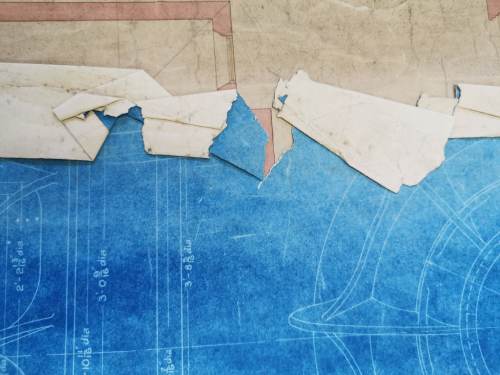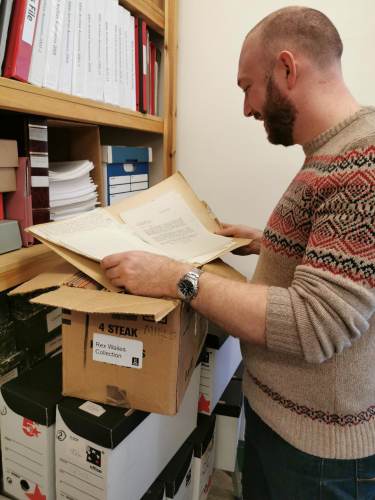We are absolutely thrilled to announce that we have been awarded a grant of £9,944 from the National Manuscripts Conservation Trust for our new project, Mill Makers: The Wright Records.

Here at the Archive we hold 26 millwrighting collections, containing unique and vital records of Britain’s milling heritage created by the skilled men who were responsible for the construction and repair of traditional windmills and watermills over the last two centuries. With 3,500 hand-drawn, meticulously measured plans, sketches, research notebooks and records of work, the collections document the individual structures and regional variations of over 100 mills.

As well as being of huge interest to mills enthusiasts, historians, family history researchers and academics alike, the records also provide the core knowledge base for the future restoration, preservation and maintenance of Britain’s mills, which will enable modern millwrights to retain these traditions and train new millwrights in this ancient craft.
Two particularly significant collections are those of Vincent Pargeter and Rex Wailes, widely hailed as the 20th century’s most influential mill experts. They were responsible for the repair and conservation of many mills.


Last summer we received the Rex Wailes Collection from the Science Museum, and donations to our current Rex Wailes Appeal will go towards cataloguing his collection. We are hugely grateful to everyone who has contributed to this appeal so far, as it will provide vital funds for additional cataloguing and care.
The NMCT grant will allow us to have these vital documents professionally conserved, repackaged in archival-standard housing, and digitised, increasing access to the collection both in person and online. It will provide funds to train our volunteers in manuscript cleaning, packaging and handling, and we will be able to use the conserved material in our training workshops to teach people how to care for records of mills they own or volunteer at – ensuring future preservation of Britain’s milling history.
Conservation is due to take about a year and once finished, the conserved contents of the collections will be available to view in person at the Archive, as well as being available to people all around the world via our online catalogue.

